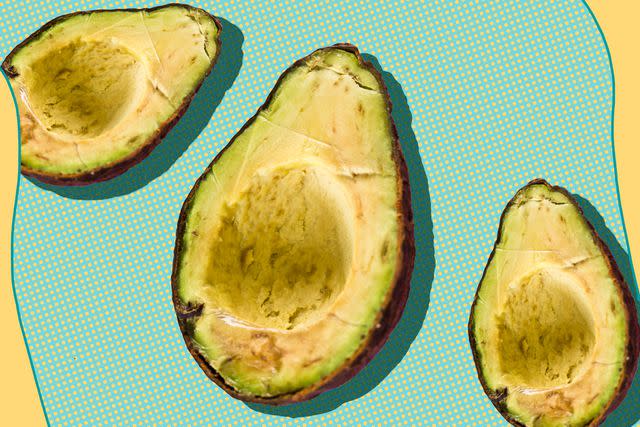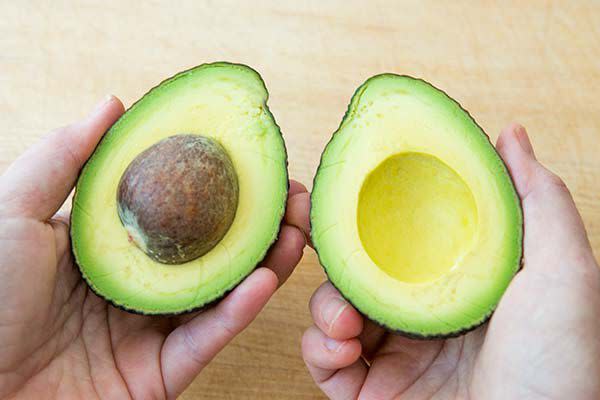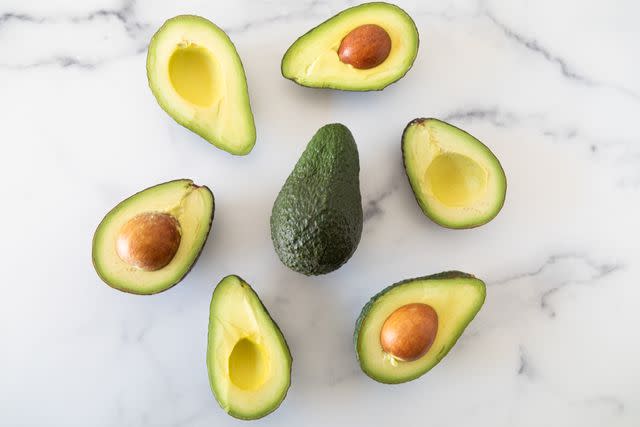The Only Way To Prevent Avocados From Browning Too Quickly
The experts share their tips for how to slow down mother nature.
Whether you’ve received a windfall of avocados from your backyard tree (I’m looking at you, Californians!), are headed out of town for a few days and have a pile of avocados at home, or just need a little break from your daily avocado toast, sometimes you need to slow down mother nature before your avos go all brown and mushy.

Simply Recipes / Photo Illustration by Wanda Abraham / Getty Images
Luckily, there are storage methods that help slow the ripening process so you’re not stuck eating guacamole for a week straight. Read on to find tips for preserving this beloved and highly coveted fruit.
Get Recipe with Title: How to Make the Best Guacamole

Simply Recipes / Elise Bauer
How To Prevent Avocados From Rotting
To prevent avocados from rotting, consider what conditions are best for ripening avocados. If they’re rock hard and you want them to ripen as quickly as possible, placing them in a paper bag with a ripe fruit on your countertop is the best way to hasten the process.
Read More: How to Ripen Avocados
This is because, as Cook's Illustrated’s Kitchen Smarts explains, climacteric fruits (AKA fruits that continue to ripen after they’re harvested) produce a colorless and odorless gas called ethylene.
As ethylene levels increase in climacteric fruit, they become more and more ripe. Exposing unripe fruit like an avocado to a ripe fruit emitting lots of ethylene helps to boost levels of ethylene in the unripe fruit, causing it to soften faster. Other examples of climactic fruits include bananas, apples, peaches, tomatoes, and mangos.
To prevent avocados from rotting, or to slow their ripening process, do the opposite of the above technique: keep them in your refrigerator, away from any other climacteric fruits, especially ripe ones.
Doing this will delay the ripening process in unripe avocados and help hold ripe avocados in their current state for a day or two. It’s a good idea to continue checking on the ripeness of your avocados if you can even when they’re refrigerated to ensure they’re not ripening past their prime.
It should be noted, as author Linda Doeser explains in The Little Green Avocado Book, that it’s best to ripen avocados slowly at temperatures between 60° and 70°F for optimal texture and flavor. But, if you’ve got more avocados than you can eat, go ahead and throw ‘em in your fridge to buy yourself some time.

Simply Recipes / Lori Rice
How To Preserve Avocados In The Freezer
If you weren’t able to slow the ripening process and if you’ve got more ripe avocados than you can eat, don’t worry—you can still take advantage without converting to an all-avocado diet.
Ghiada Batarseh Havern, a Food Safety educator at Michigan State University, suggests freezing them. To do so, mash all your ripe avocados, then stir in one tablespoon of lemon juice for every two avocados. Transfer this mixture to resealable containers, leaving a little headspace to allow the avocado to expand once frozen without cracking or opening the container. Date your containers and be sure to use them within 12 months.
Since the texture of the avocado will change a bit once defrosted, I’d recommend using it in combination with other ingredients rather than eating it straight-up, like dolloped on a grain bowl or served simply with salt and pepper on toast. Instead, blend it into smoothies, salsas, or dressings, or use it in an ingredient in your favorite creamy dip.
Read the original article on Simply Recipes.

